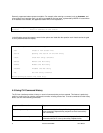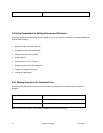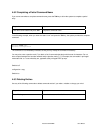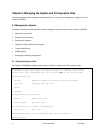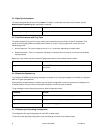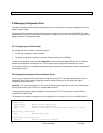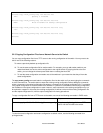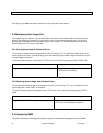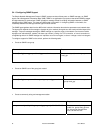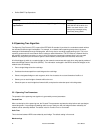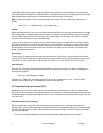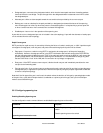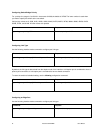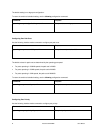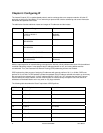
5.4.1 Configuring SNMP Support
The Simple Network Management Protocol (SNMP) system consists of three parts: an SNMP manager, an SNMP
agent, and a Management Information Base (MIB). SNMP is an application-layer protocol that allows SNMP manager
and agent stations to communicate. SNMP provides a message format for sending information between an SNMP
manager and an SNMP agent. The agent and MIB reside on the switch. In configuring SNMP on the switch, the
relationship between the manager and the agent must be defined.
The SNMP agent gathers data from the MIB, which holds the information about device parameters and network data.
The agent also responds to the manager’s requests to get or set data. An agent can also send unsolicited traps to the
manager. Traps are messages alerting the SNMP manager to a specific event on the network. Such events include
improper user authentication, restarts, link status (up or down), closing of a TCP connection, or loss of connection to
a neighboring switch. An SNMP manager can request a value from an agent, or store or change a value in that agent.
To configure support for SNMP on the switch, perform the following tasks:
• Create an SNMP user group
Command Purpose
Switch(Config)# snmp group add read_grp version 1 access ro
Create a ‘read_only’ version 1group
‘read_grp’
• Create an SNMP user of the group just created
Command Purpose
Switch(Config)# snmp user add user_read group read_grp version 1
Create a version 1 user ‘user_read’ of
group ‘read_grp’
• Create a community string and management station
Command Purpose
snmp community add public group read_grp mgmt-ip 192.168.123.100
Create a community string
‘public’ for group ‘read_grp’ that
can be used by management
host 192.168.123.100
39 Asante IC3724PWR User’s Manual



